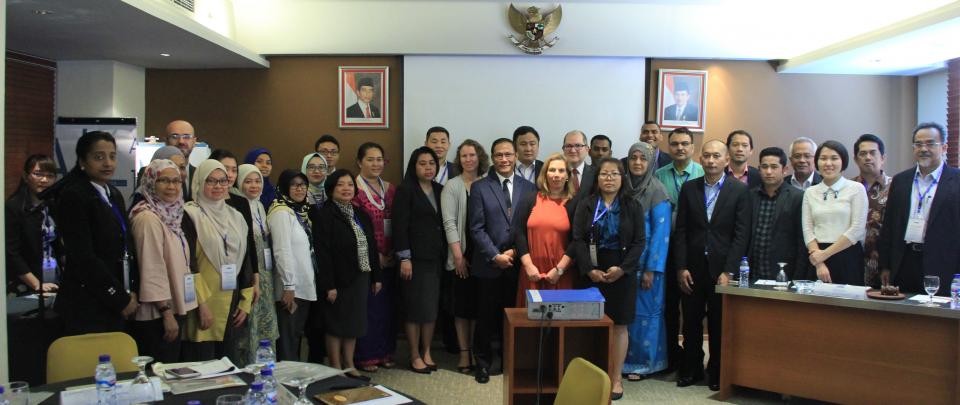Closing Regional Workshop on SEEA in Jakarta, Indonesia

How can countries best communicate and disseminate SEEA accounts to relevant stakeholders to influence policy decision making? The closing workshop for the UN Development Account project in Asia (27–30 November, 2017), organized by the United Nations Statistics Division, in collaboration with Statistics Indonesia and the World Bank, brought together nearly 50 participants from nine different countries to share their experiences with SEEA accounts in Jakarta, Indonesia.
The UN Development Account project aims to enhance the capacity of National Statistical Offices of Asian countries in the implementation of the SEEA. The closing workshop provided an excellent opportunity for Indonesia and Malaysia, the project countries, to share their experiences on drafting of national plans for the implementation of the SEEA and the compilation of pilot accounts.
Compilation, dissemination and policy
Participants discussed the challenges and lessons learned during the compilation and dissemination of accounts. Participants from the region shared water, energy, air emission and land accounts, as well as the technical issues faced and how these issues were resolved. Those from National Statistical Offices drew linkages between the technical issues faced in their own countries with those of other countries while participants from line ministries gathered information on how SEEA accounts could be used for policy and analysis.
Interspersed throughout the sessions on compilation and dissemination of accounts were opportunities for all participants—those from National Statistical Offices and line ministries alike—to examine dissemination of the SEEA through the lens of the SDGs, in particular SDG 6 on clean water and sanitation and SDG 7 on affordable and clean energy. Participants drew from their countries' experiences to debate the most useful aggregates of the SEEA and to identify what kinds of additional information could be used with those aggregates that would be beneficial from a policy perspective.
Continuing the focus on policy, Juan-Pablo Castaneda of the World Bank faciliated a discussion on the SEEA, natural capital accounting and policy. How, and perhaps more importantly, when, natural capital accounting can be useful in the policy cycle was discussed and debated. Additionally, Lauren Binns of the Australian Bureau of Statistics, Dr. Medrilzam and Pak Farhan Helmy from the Ministry of National Development Planning in Indonesia and Vishalini Arumugam of the Economic Planning Unit, Prime Minister's Department in Malaysia provided concrete examples on applying the SEEA and natural capital accounting to policy in their countries.
Communication and outreach
The third day of the workshop focused on communication and outreach. The workshop participants agreed that compilation and dissemination alone were not enough, and many spoke to the importance of communication and outreach for the SEEA in their countries. Lauren Binns of the Australian Bureau of Statistics facilitated an engaging session on innovation and communication principles. Key takeaways included the importance of adapting one's message to the specific audience and the importance of targeting your messages to certain groups.
Where do we go from here?
The last session focused on the way forward and next steps. While the workshop was a closing workshop for the UN Development Account project, it was more the end of the beginning for the SEEA in Indonesia and Malaysia. While Statistics Indonesia and the Department of Statistics Malaysia made admirable achievements over the course of the project, more work needs to be done to maintain and expand the accounts. The workshop closed with the project countries and participants from Bhutan, China, Fiji, India, Mongolia, Philippines and Samoa identifying the next steps they could take in their countries and how they and the United Nations Statistics Division and the international community could work together in the future.
